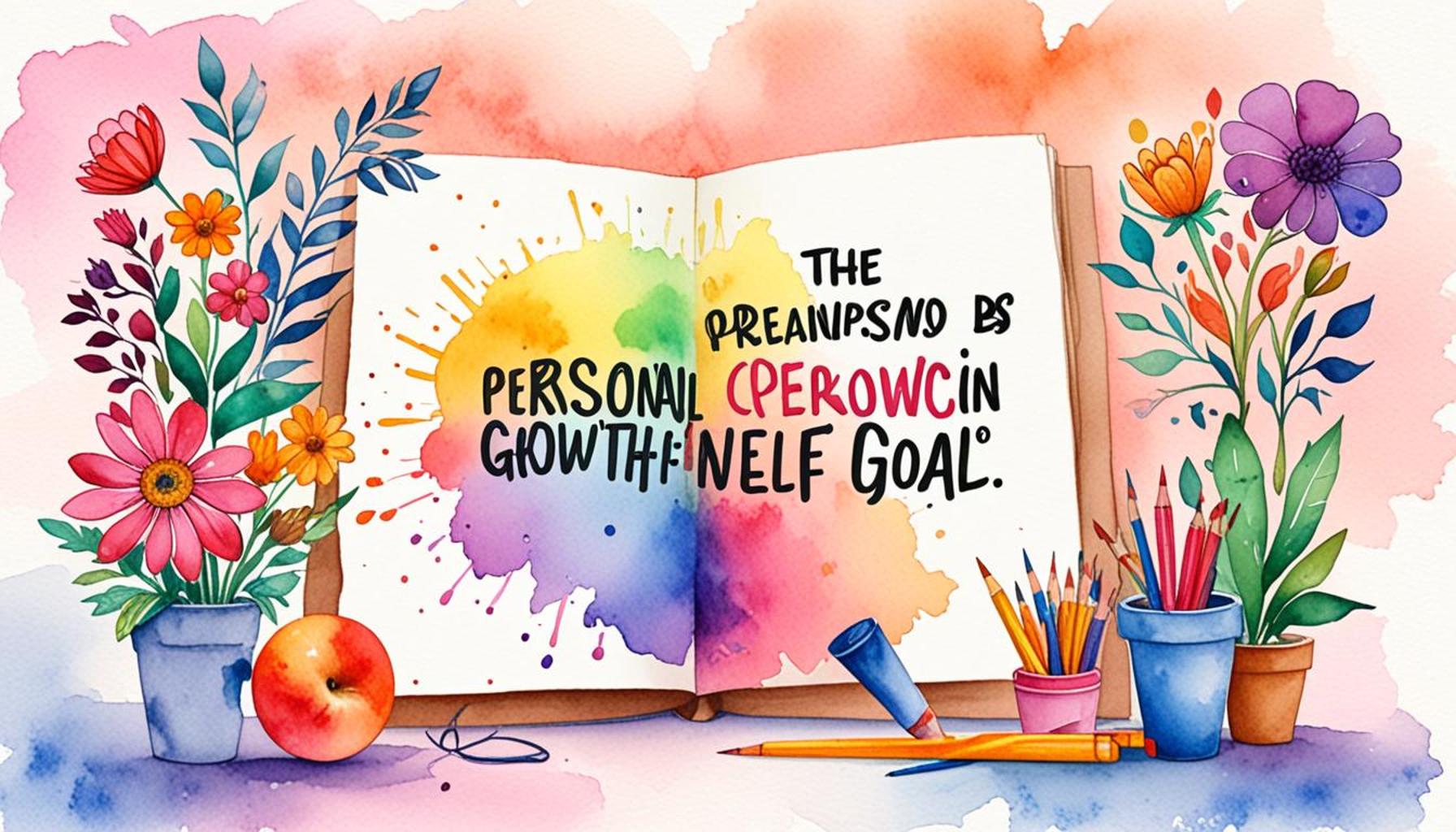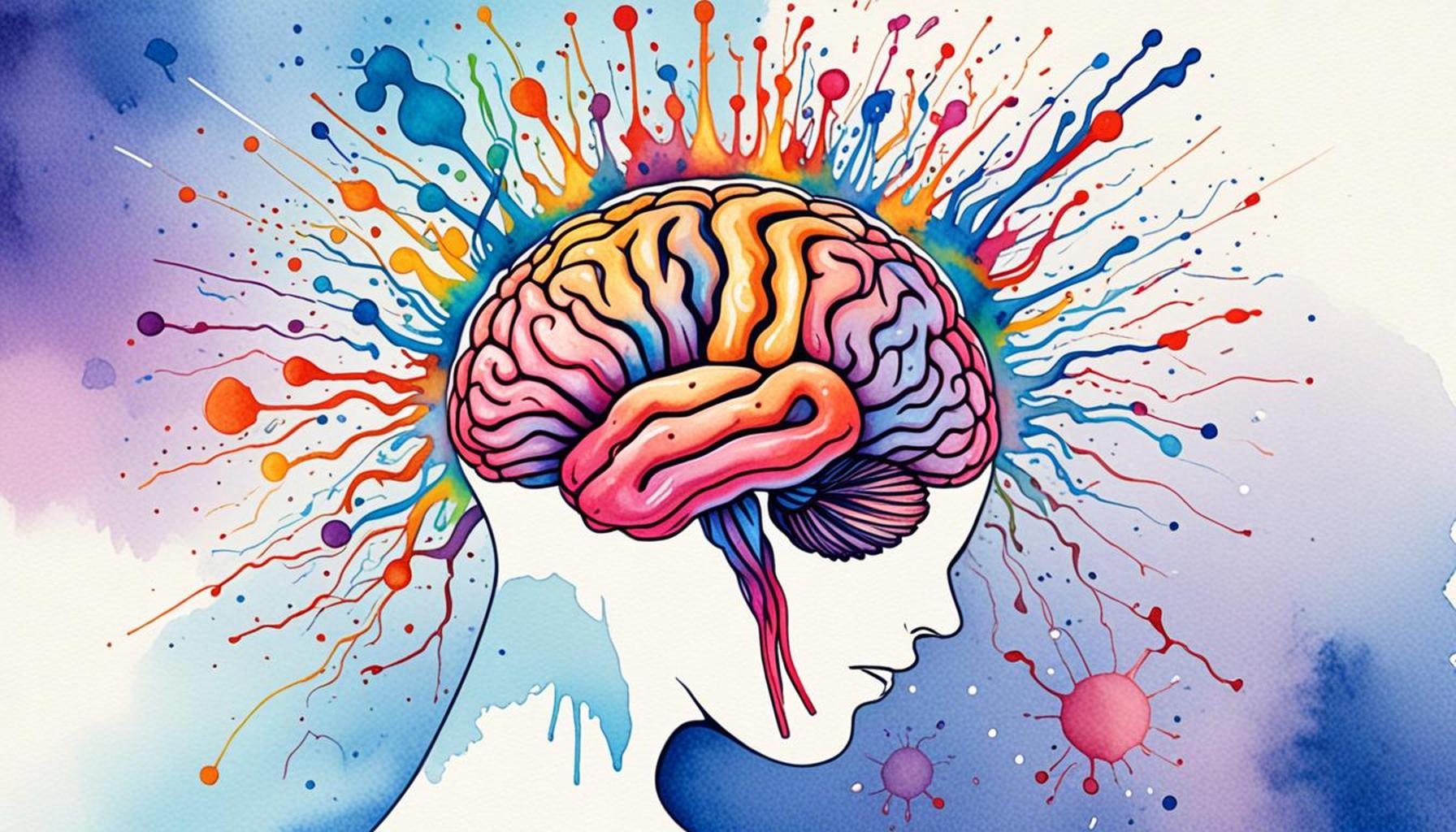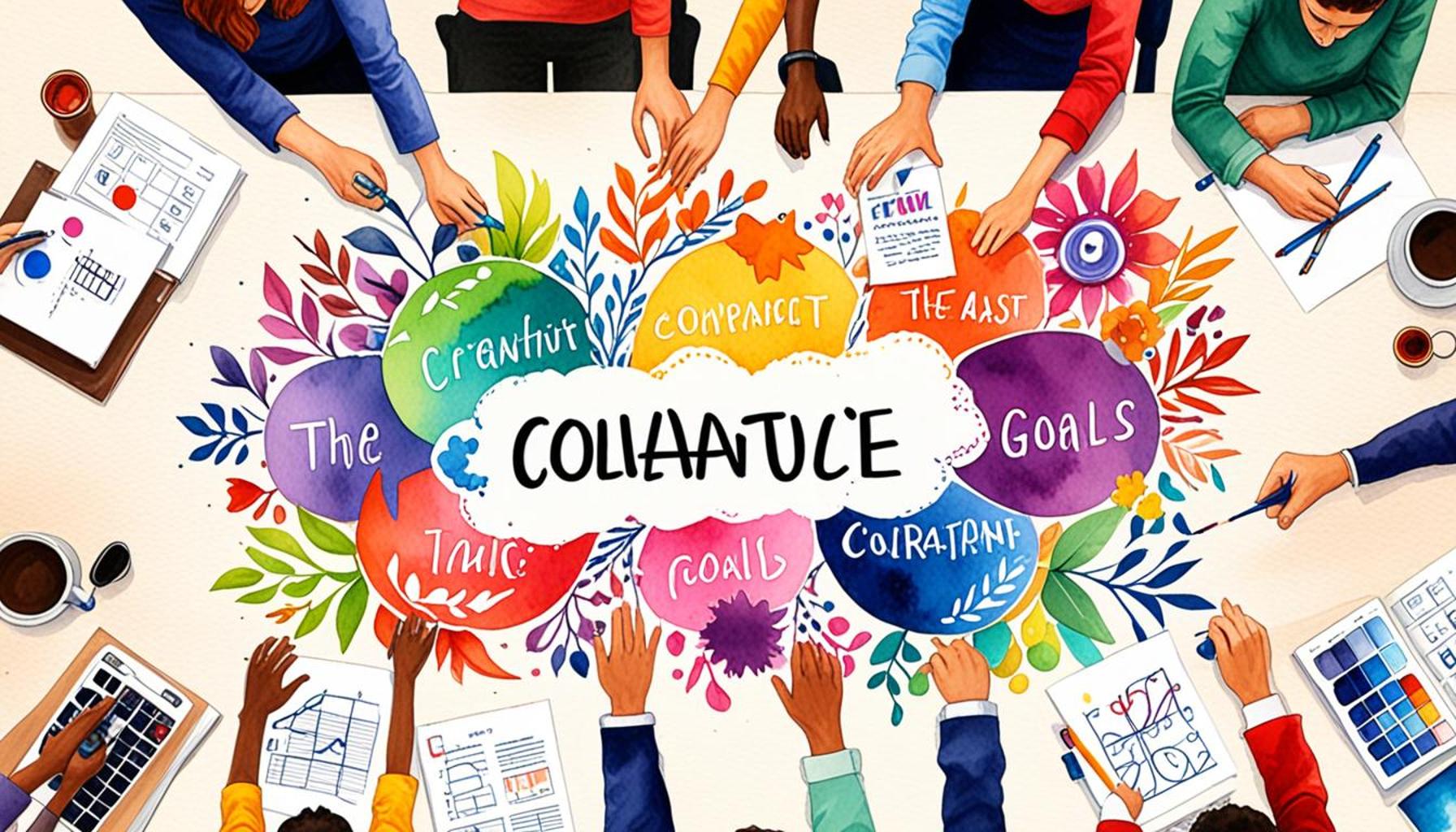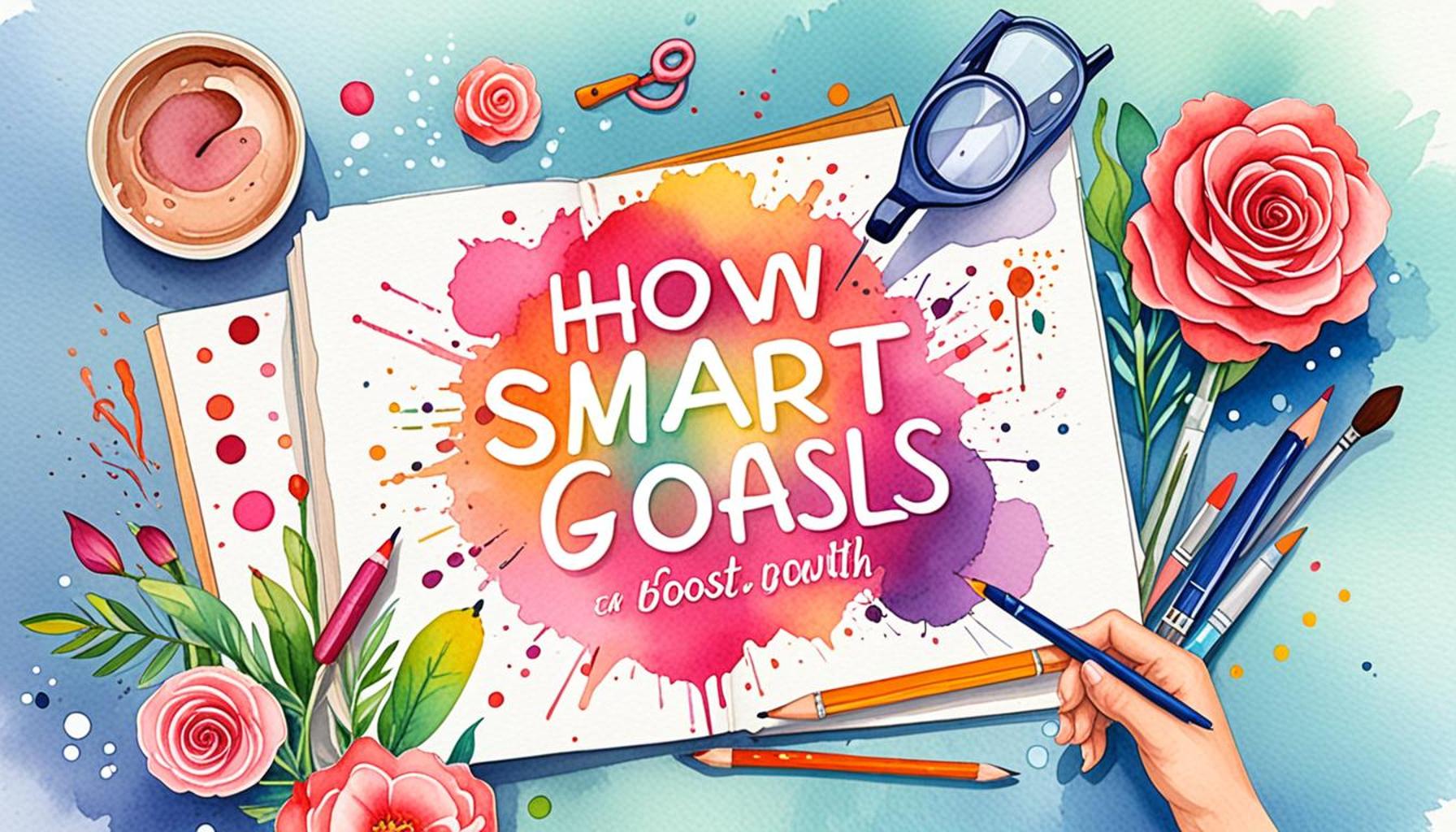The Relationship between Personal Goals and Self-Confidence in a Growth Mindset

The Interplay of Dreams and Belief
In today’s dynamic society, understanding the intricate relationship between personal goals and self-confidence is essential for individuals navigating the path to success. This connection is particularly heightened within the framework of a growth mindset, where both elements act as catalysts for unlocking one’s true potential and cultivating resilience in the face of challenges.
Consider the following aspects that shape this relationship:
- Personal Goals: These are crucially defined objectives that provide individuals with direction and motivation. Without them, one might find it difficult to stay focused and committed.
- Self-Confidence: This involves the belief in one’s abilities and judgment, serving as a foundational pillar for taking action and overcoming obstacles.
- Growth Mindset: This is the understanding that intelligence and skills are not fixed traits but can be nurtured through hard work and dedication.
In Nigeria, where aspirations range from launching innovative startups to excelling in the academic realm, the importance of robust self-belief cannot be overstated. For instance, young entrepreneurs often embark on ventures in sectors like technology or agriculture, driven by the necessity to create jobs and drive economic growth. Personal goals, such as securing funding or developing a market-ready product, serve as milestones along their journey, providing a framework for measuring progress.
Adopting a growth mindset means that individuals learn to perceive challenges not as insurmountable barriers but as valuable opportunities for growth. This mindset significantly bolsters self-confidence. For many Nigerians, this manifests in setting realistic short-term objectives—like completing a certification program or launching a pilot version of a product—while keeping the long-term vision of financial independence or industry leadership in sight.
But how do these components interact? The synergy between having defined personal goals and fostering self-confidence often leads to transformative outcomes. When individuals succeed in short-term objectives, their self-esteem is enhanced, fueling their ambition to tackle larger challenges. This cycle of achievement reinforces their belief in their capabilities, which in turn makes them more resilient in the face of setbacks.

This article aims to delve deeper into these connections and provide readers with insights that may inspire introspection on their personal journeys. By understanding how to align personal goals with self-confidence, individuals can chart a more effective path toward their aspirations, ultimately impacting broader societal growth in Nigeria.
LEARN MORE: This related article may interest you
The Power of Defined Objectives
Setting personal goals is integral to shaping an individual’s trajectory towards success, especially in a vibrant and rapidly evolving environment like Nigeria. These goals serve as the roadmap, guiding one’s efforts and aspirations. When individuals articulate what they want to achieve—be it in business, education, or personal development—they create a concrete pathway to follow. The clarity that comes with defined objectives plays a pivotal role in enhancing self-confidence and fostering a growth mindset.
In Nigeria, where the entrepreneurial spirit is thriving among the youth, it is common to observe individuals who not only dream but also pursue measurable goals. For example, a young fashion designer may set targets such as launching their own clothing line or participating in a prominent fashion showcase. Each achievable step, like designing a single outfit or obtaining feedback from seasoned colleagues, builds their self-belief and encourages them to aim higher.
The Cycle of Achievement and Confidence
When individuals accomplish their set milestones, however minor they may seem, it generates a ripple effect on their self-confidence. This is where the interrelationship between personal goals and self-confidence becomes evident. Small wins lead individuals to believe in their capabilities, thus motivating them to pursue larger tasks. Each success constructs a layer of confidence, creating an empowering cycle that fuels their overall progress.
- Goal Clarity: Defined goals help in clarifying what success looks like, reducing anxiety and indecisiveness.
- Incremental Progress: Achieving smaller objectives enables individuals to experience and celebrate progress.
- Positive Reinforcement: Success breeds confidence, encouraging individuals to set and tackle more formidable challenges.
The dynamics of this relationship are particularly relevant in educational settings. Students who set personal academic goals, such as achieving a particular grade or mastering a new subject, often experience improved self-esteem as they progress. For instance, a university student aspiring to graduate with honors can break this down into manageable tasks like studying for exams, engaging in study groups, or seeking mentorship. With each accomplishment, their belief in their academic abilities strengthens, showcasing the direct correlation between goal achievement and self-confidence.
In this lens, the notion of a growth mindset serves as a crucial enhancer. It encourages individuals to perceive failures not as setbacks but as stepping stones towards their goals. This perspective not only prepares them to face challenges but also amplifies their self-belief, making them more resilient and determined in their pursuits.
As we delve deeper into these connections, it becomes clear that fostering personal goals and embracing a growth mindset can significantly influence self-confidence. This understanding is essential not only for individual development but also for contributing to Nigeria’s broader socio-economic landscape, driving innovation, and inspiring a culture of achievement among the youth.
The Relationship between Personal Goals and Self-Confidence in a Growth Mindset
As individuals embark on the journey of personal development, they often grapple with understanding how personal goals fuel their self-confidence, particularly within a growth mindset. This dynamic relationship is not merely an abstract concept but a practical framework that can enhance both personal and professional growth.
Setting achievable personal goals acts as a catalyst for confidence building. When individuals outline specific targets, they create a roadmap that provides direction and purpose. Each milestone achieved becomes a source of motivation, reinforcing their belief in their capabilities. Research consistently indicates that those who actively pursue personal goals exhibit higher levels of self-efficacy, a key component of self-confidence.
Moreover, the practice of reflecting on accomplishments and reassessing goals fosters resilience—a critical aspect of a growth mindset. For instance, when faced with setbacks, individuals who maintain a growth-oriented perspective are likely to view challenges as opportunities for learning rather than as insurmountable barriers. This mindset encourages a continuous cycle of goal-setting and achievement, ultimately contributing to greater self-assurance and personal satisfaction.
Furthermore, surrounding oneself with a supportive community that shares similar aspirations can amplify this effect. Engaging in discussions and sharing experiences with like-minded individuals can bolster one’s confidence, as it creates an atmosphere of encouragement that celebrates both small and large successes.
| Category | Description |
|---|---|
| Personal Goal Setting | Establishing clear targets enhances focus and motivation. |
| Resilience Building | Viewing setbacks as learning opportunities reinforces self-belief. |
From this perspective, it becomes evident that the relationship between personal goals and self-confidence is integral to fostering a robust growth mindset. As one sets out to achieve their defined objectives, they not only progress towards accomplishment but also cultivate a stronger self-image in the process. Continuously engaging in this cycle spells greater potential for success in various life domains, inviting further exploration into the transformative power of a growth mindset.
ADDITIONAL INSIGHTS: Expand your understanding here
Building Resilience Through Challenges
Embracing a growth mindset is essential in the relationship between personal goals and self-confidence, particularly when individuals face challenges. In Nigeria, where societal and economic obstacles can often seem daunting, the ability to navigate setbacks becomes a defining trait for many. Those who set personal goals and approach them with a growth mindset are more likely to perceive challenges as opportunities to learn rather than barriers to success. This shift in perspective is crucial in enhancing self-efficacy.
For example, consider a young Nigerian entrepreneur who encounters financial difficulties while trying to launch a tech startup. Instead of succumbing to discouragement, they might re-evaluate their strategies, seek mentorship from experienced peers, or even pivot the business model. This adaptability not only demonstrates resilience but also contributes significantly to their overall self-confidence. By facing and overcoming these hurdles, they reinforce their belief in their creative problem-solving abilities, thus encouraging further goal-setting and pursuit.
The Role of Feedback in Goal Achievement
Another important aspect of this relationship is the incorporation of constructive feedback. Regularly seeking and utilizing feedback from mentors, peers, or even customers can greatly enhance self-awareness and self-confidence. In an academic context, feedback on assignments or presentations can empower students to refine their skills and approach. For instance, a Nigerian student preparing for a national debate competition may receive input on their arguments or delivery, allowing them to fine-tune their performance. This iterative process of improvement fosters a greater sense of competence, significantly contributing to their self-esteem.
- Continuous Improvement: Feedback loops create opportunities for learning and mastery, reinforcing self-belief as individuals see their growth over time.
- Adaptable Strategies: Incorporating feedback fosters flexibility in goal attainment, enabling individuals to adjust their paths based on new insights.
- Community Support: Engaging in discussions with peers provides a platform for shared experiences, highlighting that challenges are universal and surmountable.
In addition to feedback, surrounding oneself with a supportive community is vital in fostering self-confidence. Groups that encourage goal setting and celebrate achievements can create a culture of mutual upliftment. In Nigeria, local youth-driven initiatives and co-working spaces often provide environments where individuals can share their aspirations and challenges. These communal efforts empower individuals to take bold steps towards their goals, instilling confidence through shared experiences and collective resilience.
The interplay of personal goals and a growth mindset also has implications for mental health. Setting realistic yet challenging goals can mitigate feelings of inadequacy or depression that stem from perceived failures. When individuals align their personal objectives with their abilities and passions, they experience a sense of fulfillment. This alignment not only enhances self-confidence but also promotes a healthier outlook on life’s challenges.
Moreover, research has shown that individuals with a strong connection between goal achievement and self-confidence are more likely to form positive habits and engage in lifelong learning. This commitment to personal and professional development acts as a cornerstone for future success, showing that when personal goals are nurtured within a growth mindset framework, the rewards amplify across all areas of life.
YOU MAY ALSO LIKE: Read read another article
Conclusion: The Synergy of Personal Goals and Self-Confidence
In exploring the relationship between personal goals and self-confidence within a growth mindset, it becomes evident that this dynamic interplay is vital for personal development in Nigeria and beyond. Individuals who embrace a growth mindset view setbacks not as failures, but as stepping stones towards their aspirations. This perspective instills resilience, encouraging individuals to navigate obstacles with ingenuity and determination. The case of emerging entrepreneurs and students tapping into constructive feedback highlights the profound impact of adaptability and open-mindedness on both personal growth and self-efficacy.
Additionally, the importance of a supportive community cannot be overstated. Engaging in environments that celebrate achievements and foster collaboration enhances self-confidence, allowing individuals to thrive collectively in their pursuits. As demonstrated through various examples, the shift in mindset plays a critical role in mental health, enabling individuals to align their objectives with their passions, thus cultivating a fulfilling sense of purpose.
Furthermore, by committing to continuous improvement and lifelong learning, individuals with well-set personal goals can create a sustainable path toward success. The correlation between goal achievement and heightened self-confidence is not just beneficial; it is transformative, impacting every facet of life. Ultimately, by cultivating a growth mindset that intertwines personal aspirations with self-belief, individuals can unlock their true potential and contribute significantly to their communities and society at large. This journey towards self-discovery and empowerment is one worth pursuing, reaffirming the notion that growth is a continuous and deeply rewarding process.



